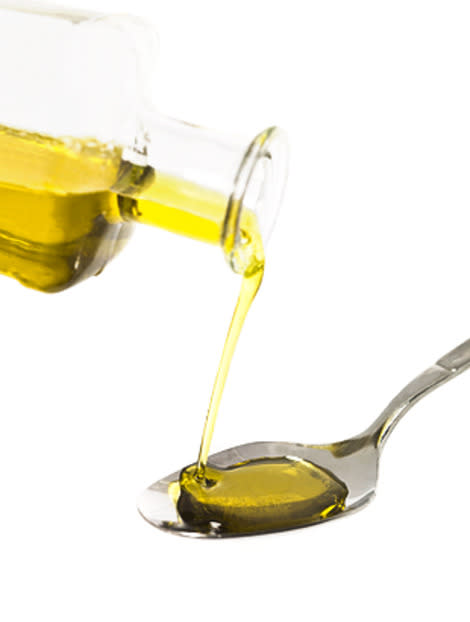Why You Should Eat More Fat

Want to boost your health? Add some fat to your diet. It's especially good for your heart. "Fat is not a bad word," say Marc Gillinov, MD, and Steven Nissen, MD, authors of Heart 411: The Only Guide to Heart Health You'll Ever Need (Three Rivers Press). "The idea that fat is bad for your heart is simply incorrect."
What matters is the type of fat that's on your plate. Good fat -- the unsaturated kind -- helps lower your total cholesterol and "bad" LDL cholesterol levels and boost your "good" HDL cholesterol. Here's a rundown of fats, from the best to the worst.
Best Fat: Monounsaturated
When it comes to heart health, monounsaturated fat is the best fat. In a Canadian study, volunteers who replaced 13% of carbohydrates with monounsaturated fat lowered their LDL cholesterol by 35% and improved their HDL cholesterol by 12.5% in just 4 weeks. Smart sources of monounsaturated fat include olive oil, canola oil, nuts and nut oils, avocados, and sesame oil.
How adding eating healthy fats helps melt belly fat.
Among monounsaturated fats, olive oil is an amazing elixir for your heart health. "It's associated with decreases in triglyceride levels, inflammation, and blood clotting, and better blood vessel function," Gillinov and Nissen note. In particular, extra-virgin olive oil may increase good-guy HDL cholesterol while lowering harmful LDL.
Good Fat: Polyunsaturated
Polyunsaturated fats aren't quite as potent for heart health as monounsaturated fats, but they're still powerful in helping manage your cholesterol. Fatty fish is an outstanding source of polyunsaturated fats, say Gillinov and Nissen. Why? Coldwater fish, including salmon, sardines, halibut, and tuna, are rich in the omega-3 fatty acids eicosapentaenioc acid (EPA) and docosahexaenoic acid (DHA). EPA and DHA may help lower nasty triglycerides, raise beneficial HDL cholesterol, prevent blood clots, tame inflammation, and make your blood vessels function better. Walnuts, flaxseeds, and canola oil are also good sources of polyunsaturated fat.
The best fish for you and the environment.
Bad Fat: Saturated
Too much saturated fat drives up total cholesterol and artery-clogging LDL cholesterol. Overall, limit saturated fat to no more than 7% of your daily calories. That's 11 to 14 grams for women and 14 to 17 grams for men. "Most Americans eat nearly twice this amount," Gillinov and Nissen say. Skip red meat, butter and other full-fat dairy products, coconut oil, palm oil, and shortening.
Processed meat -- bacon, pastrami, and the like -- is especially bad for your heart. It's as high in saturated fat as other types of red meat, but it's also high in sodium, which can boost your blood pressure, and nitrates, which may mess with your body's glucose tolerance and raise your risk of heart disease and diabetes. The equivalent of a couple of slices of deli meat or a hot dog a day is linked to a 42% higher risk of heart disease and a 19% greater risk of diabetes.
Worst Fat: Trans Fat
Trans fat is created when a liquid fat is infused with hydrogen and becomes solid at room temperature so it has a long shelf life. That's why you'll find it in processed food -- everything from commercial baked goods, stick margarine, and shortening to fast food. This bad-guy fat increases triglycerides, total cholesterol, and LDL cholesterol, and decreases HDL cholesterol -- all bad for your heart.
Related: 8 ways to boost your "good" HDL cholesterol.
"There's no safe quantity of trans fat," Gillinov and Nissen advise. "Our recommended intake is as close to zero as you can get."
Some cities and states have banned trans fat, and the Food and Drug Administration requires food manufacturers to include trans fat content on Nutrition Facts labels. But watch out for foods labeled "trans fat free."
"Foods may be listed as 'zero trans fats' if they contain less than 500 mg of trans fat per serving," Gillinov and Nissen warn. Even that small quantity of trans fat might be bad for your heart, they say. Their advice: Check the ingredient list. If it includes "partially hydrogenated vegetable oils," you know it has trans fat even though the Nutrition Facts claim otherwise.
Get more health tips from RealAge:
Get healthier, feel better and grow younger. Take the RealAge Test.
4 herbs that get rid of headaches
The shocking truth about agave syrup
